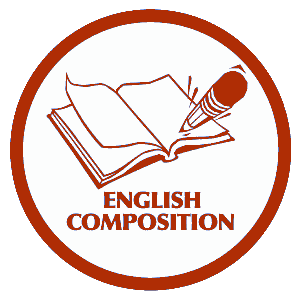English Composition is a essential subject for all college majors because it develops analytical thinking by students tempting to think beyond the obvious and use critically to explore other possibilities. The views expressed are articulated and expressed in the format of composition. One of the methods used to develop these skills is reflected by the reading of short stories.
English composition is not different from when you were in elementary school and learned to read stories and break them down into sections to understand the story as a whole. The same basic elements of the story plot, theme, characters, setting, and the views are used to help students develop their critical thinking and writing skills.
The plot is the basis of history. One aspect of the plot is argument. The argument is used to continue stress for the reader remains involved. English composition students learn to recognize different forms of argument and write how the argument is used - between a character and nature, character and society, between the characters, or a character.

The people who involved in the story are the characters and are supposed the most important as the story revolves around the character. Personality characterizes the character, and a composition student of good English would be able to classify four ways in which a character is developed: the appearance, action, dialogue and monologue, and write compositions of descriptive how each feature was shown. Infer the trait of a character is an important part of reading.
In most stories, setting is an integral part of the effectiveness of the story. Therefore, students in English composition must be able to recognize the types of parameters are used and what connection they have plots and characters. The four dimensions of context are location, weather, time, and time of day. Identification of specific parameters and understanding of their roles in history requires a thorough analysis and survey, as many writers intended to make the establishment of a viable character.
All stories are written from an exact point of view. The point of view has important impact on learning the characters and event of history and English Composition helps students to recognize it. The four points of view are first person, omniscient, limited omniscient and objective point of view. The first person is told through the eyes of a character. Is an omniscient narrator as GOD? Limited omniscient is said in the third person. Objective point of view focuses on what is instantly noticeable and easy to hear.
The last element of a story is the theme. This ingredient requires thinking more critically than any other story element, because the theme is the deep sense of history, and explores the general truths about human nature. Themes can be explicit, clear and open in history, or implicit, which means implied or inferred. Some stories may have multidimensional issues. Analytical skills necessary to explore and make conclusions theme, and good writing skills are required to articulate in writing.
English Composition is an excellent way to develop critical thinking, strengthening articulation and expressive communication, and improving writing skills. In reading the various forms of literature and understanding of the history of the role playing elements, students learn to effectively analyze and compelling works written to express their views in the format of composition. Students enrolled in online will also have to participate in this course, they should be sure to make the best of the class interact with the teacher and classmates.
